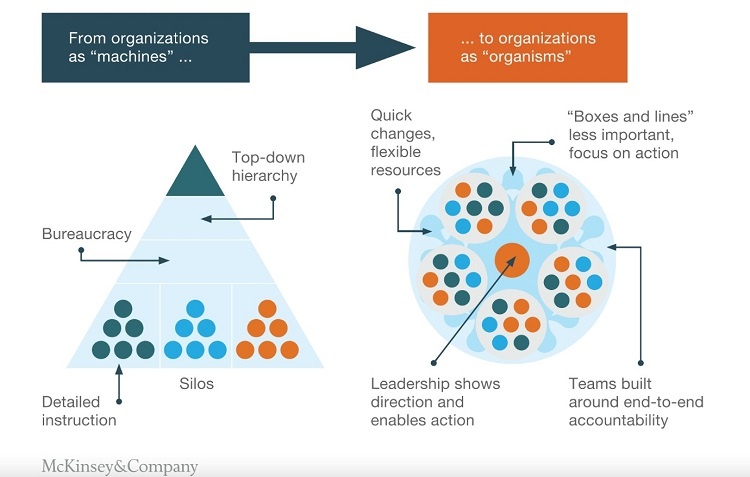Modernising HR approaches to anticipate Gen Z wave entering the workplace
Growing up in the era of integration and having the opportunity to access the wide world via the internet, Gen Z loves diversity and is open-minded about differences. According to a survey from WayUp, a human resources (HR) company, 86 per cent of Gen Z candidates say that diversity is the top criterion determining their commitment to a company. This causes Gen Z workers to look for fresh experiences and be willing to try different working environments, in other words, they have a tendency of job-hopping. That is why Gen Z employees inadvertently get the title of "fickle" workers.
 |
| Gen Z loves a working environment embracing diversity and differences |
Many HR professionals identify that Gen Z possesses an excellent amount of autonomony and is willing to step out of their comfort zone and stand out. On the positive side, this particular trait drives the generation to know how to nurture ambitions and set clear goals in work. Gen Z employees are eager to accept a position as an intern at company A instead of a full-time job at company B if they see the potential at company A. Yet on the negative side, he or she may have difficulty in blending in with other individuals in certain situations due to strong characteristics.
Commenting on the growing importance of Gen Z, Nguyen Thi An Ha, head of Strategic Partnership at Talentnet said:“In my opinion, each generation has its own unique personality that needs to be respected and requires a unique approach. Gen Z has distinctive traits making us misunderstand this generation as 'rebellious' employees, such as the need to pursue diversity and distinction can be seen as a thorn in the eyes of previous generations. Or, Gen Z's 'demand' for clear, constant, and transparent information can make other co-workers feel outraged. If HR managers are considerate, they will recognise that Gen Z converge the characteristics of the future workforce. Thus, HR people need to flexibly advise the company’s leaders on innovating management methods by trying to apply the Agile Organization Model.”
From triangle to circle – three suggestions to endorse Gen Z workers
The world does not stand still, the rigid pyramidal governance model is predicted to be gradually replaced by the Agile Organization Model in the next few years. With flexibility in management and the ability to create agile teams, the Agile Model is an HR tactic that should be applied to Gen Z in particular and the future workforce in general. Here are some suggestions for businesses if they want to "prune" a triangle into a circle.
 |
| Comparision between triangle and circle management model. Source: McKinsey&Company |
From function-based departments to project-based teams
Previously, the departmental management model and hierarchy management made assignment and team collaboration less flexible. Meanwhile, the Agile model allows allocating personnel by project based on appropriate skillsets. This measure allows leaders to simplify management layers, while also optimising individual potential.
 |
| Managing based on project groups gives managers an overview of the operation of their business |
From “directing” to “delegate”
It seems impossible to impose directions upon the “emerging” group of Gen Z employees and force them to follow. Instead of being regulated, Gen Z wants to "self-manage". Therefore, companies should be flexible in balancing “hardware” management and giving individuals or groups the freedom to manage “software” – including clear requirements for coordination, accountability, expertise, and transparency. Since 2015, ING Bank (Netherlands) has adapted flexible management systems from giants such as Google, Netflix, and Spotify. The CIO of INC said that the model had fostered employees to engage actively and increased productivity.
From “specialisation” to “generalisation”
It is rare to come across a Gen Z that likes to "sit where others sat" because Gen Z is a generation "exposed to experience", and not subdued by outside factors. According to a survey by PwC, 72 per cent of Vietnamese Gen Z want to learn and expand their digital skills to improve adaptability. They also actively hone other skills to stay ready for employee rotation at any time. “It is always attractive to Gen Z workers to challenge themselves in various positions. This method is unharmful to businesses and can help 'sharpen stones into pearls' and create breakthroughs,” Nguyen Thi An Ha, head of Strategic Partnership at Talentnet commented.
When we are a triangle, we are stable. When we are a circle, we "roll" fast. In a world of everchanging human resources after the "entry" of Gen Z, it is predicted that the Agile model will be a future strategy, not only for businesses to move fast, but also to retain talents.
What the stars mean:
★ Poor ★ ★ Promising ★★★ Good ★★★★ Very good ★★★★★ Exceptional
 Tag:
Tag:
Related Contents
Latest News
More News
- PM outlines new tasks for healthcare sector (February 25, 2026 | 16:00)
- Ho Chi Minh City launches plan for innovation and digital transformation (February 25, 2026 | 09:00)
- Vietnam sets ambitious dairy growth targets (February 24, 2026 | 18:00)
- Masan Consumer names new deputy CEO to drive foods and beverages growth (February 23, 2026 | 20:52)
- Myriad risks ahead, but ones Vietnam can confront (February 20, 2026 | 15:02)
- Vietnam making the leap into AI and semiconductors (February 20, 2026 | 09:37)
- Funding must be activated for semiconductor success (February 20, 2026 | 09:20)
- Resilience as new benchmark for smarter infrastructure (February 19, 2026 | 20:35)
- A golden time to shine within ASEAN (February 19, 2026 | 20:22)
- Vietnam’s pivotal year for advancing sustainability (February 19, 2026 | 08:44)






















 Mobile Version
Mobile Version